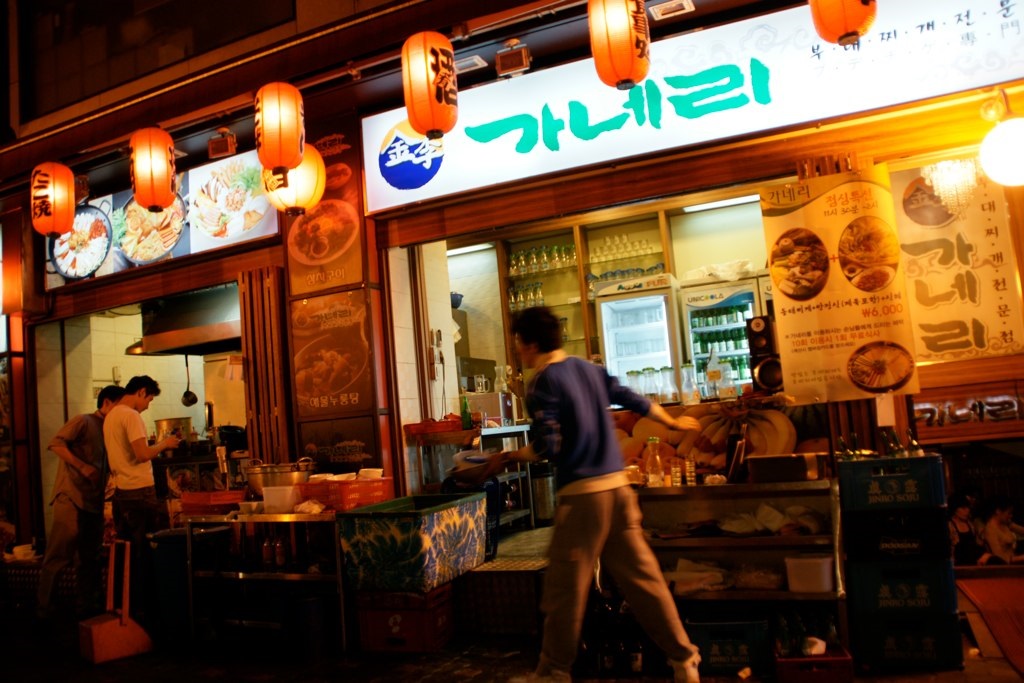The Peninsula
No Kids Zones Spread Across Korea, Even as Birthrate Continues to Drop

By Jenna Gibson
With Korea’s rock-bottom birthrate continuing to decline with no sign of stopping, you would think that Korean society would be doing everything possible to encourage people to have more babies. But a new trend may be doing the exact opposite.
In the last few years, Korea has seen a proliferation of so-called “no kids zones” – restaurants and cafes that ban children under a certain age from dining there. The spread of “no kids” establishments is largely attributed to poor behavior among children in public – and lack of responsibility by parents who let their kids run wild.
Multiple surveys have shown that Koreans are grappling with the role of children in public places. According to a February 2017 survey of people living in Gyeonggi Province, 93.1 percent of respondents said they had been inconvenienced by noisy children in a public place, and 72.2 percent said they had experienced this in a restaurant or café. Another conducted by a travel website found that 91 percent of respondents felt there should be separate “kids zones” in public places. One asked people who worked in the service industry what they thought about “no kids zones,” and 75 percent were in favor.
This is not just about inconvenience, however. Rowdy kids can actually become a serious liability for shops. In 2011, a Busan restaurant was fined 41 million won ($37,000) after a 10 year old girl burned herself on hot water. The court ruled that the parents were responsible for 30 percent of the blame, but the restaurant was still left to pay 70 percent of the fine. Experts cite this incident as the precedent that has prompted many restaurants to ban kids altogether rather than risk a steep fine in case of an accident.
The spread of no kids zones highlights a frustration in Korean society with parents who don’t take responsibility for their children or punish them for bad behavior. As one café owner said of their decision to institute a no kids zone policy, “Some mothers changed their babies’ diapers in the cafe and the children spilled drinks on the floor, which turned other customers away … I couldn’t satisfy all the customers. I had to make a choice.” A customer at another café admitted, “I told a child at a restaurant that you should not run, but his mom complained about my behavior. I feel sorry for his mom but I am much happier to have a meal at No Kids Zone restaurants.”
Note the use of “mom” in these quotes – although the Korean government is working to increase father participation in parenting and is encouraging more fathers to take paternity leave, mothers still bear the brunt of societal expectations for their children’s behavior. In fact, a slang term that has been associated with the no kids zone trend is “mamchung” (맘충) a derogatory term that combines “mom” and “insect” and is used to describe selfish mothers who think only of themselves in public spaces and neglect to rein in their children properly.
Korea is not the only country where no kids zones are popping up, though. Several restaurants in the United States have decided to ban children under a certain age from their premises, many citing loud kids disrupting other customers or even incidents where kids caused thousands in property damage. An Australian café owner caused a stir when she responded to a negative review that alleged her store was not child-friendly. “Are we child friendly? If you are looking for a cafe with a children’s menu, baby chinos, a play area, lounges for your children to jump on, vast space for your prams, an area for your children to run rampant, and annoy other customers, while you are oblivious to them — then the short answer is No, we are not child friendly,” she wrote on a since-deleted Facebook post.
Undoubtedly, stores in Korea and around the world have cause for concern if customers of any age are causing disruptions or even damaging their property. But experts say that banning kids does not address the underlying problem of teaching parents how to rein in their kids in public, and can be detrimental to a society that is already in desperate need of more children. “The existence of child-free zones itself could signal that children are not welcome in this society, deterring the younger generation from having babies,” Seoul National University psychology professor Kwak Keum-joo told The Korea Herald. “It is worrisome as such segregation could evolve into other types of discrimination against certain genders, age groups and the physically disabled.”
Jenna Gibson is the Director of Communications at the Korea Economic Institute of America. The views expressed here are the author’s alone. KEI intern Paul Sung assisted with research and translation for this post.
Photo from b cheng’s photostream on flickr Creative Commons.
